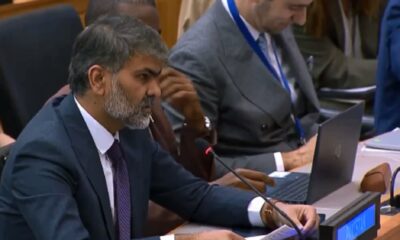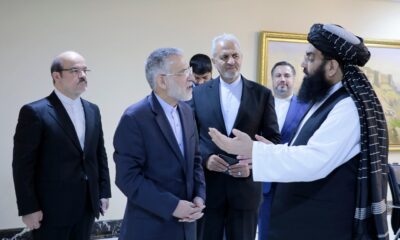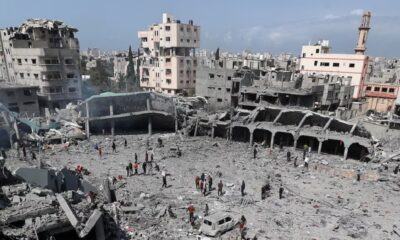Latest News
Intense fighting a serious challenge for patients, MSF staff in Helmand
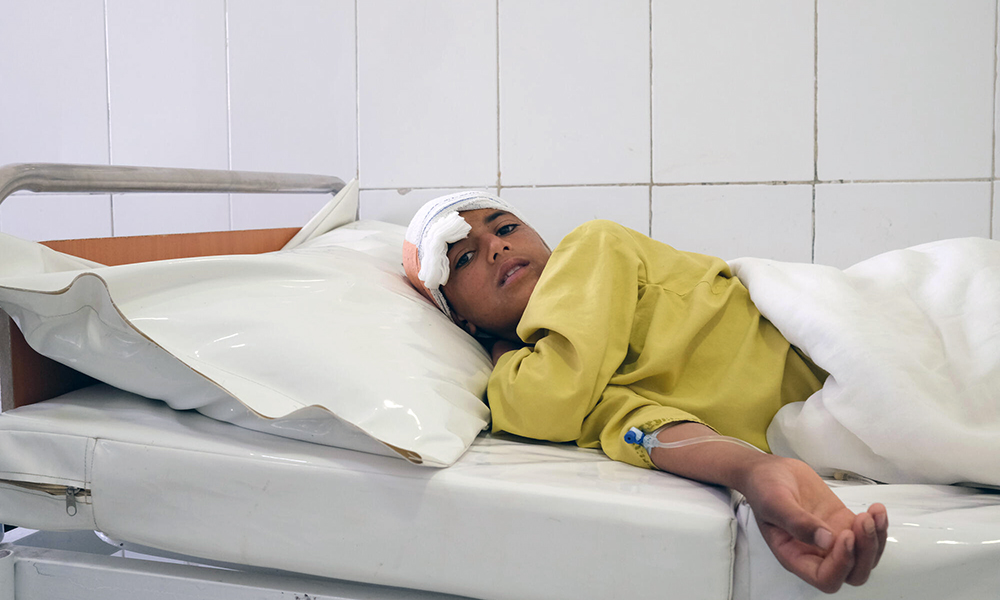
Médecins Sans Frontières reported Tuesday that while fighting has been intense since May in Helmand province, clashes between the Afghan security forces and the Taliban have intensified in recent weeks and spread to more urban areas such as the provincial capital of Lashkargah city.
“There has been relentless gunfire, airstrikes and mortars in densely populated areas. Houses are being bombed, and many people are suffering severe injuries,” says Sarah Leahy, coordinator of the MSF Helmand project.
“Fighting within the city makes it harder for us to respond; our staff are part of the community and they, like many people, are afraid to leave their homes. It’s just far too dangerous and life is at a standstill,” says Leahy.
“Some of our colleagues are staying overnight in the hospital as it’s safer, but also so they can keep on treating patients. The situation has been dire for months but now it is even worse.”
Despite the challenges, the MSF-supported Boost hospital remains operational and has seen a marked increase in trauma needs over the past week.
“In just one day we performed 10 surgeries on people injured by violence, which is unheard of for us as we are not Lashkargah’s main provider of trauma care,” says Leahy. “Before last week we were operating on average on two war-wounded people per day.”
The main trauma centre in the city is run by another organisation, and is also under immense pressure; the people they cannot admit are sent to MSF for care, the statement read.
Between 29 and 31 July alone, MSF treated 70 war-wounded patients. In total from 3 May until 31 July, we have treated 482 war-wounded people, nearly all (92 per cent) for injuries caused by shells and bullets, and around a quarter (26 per cent) aged under 18. The patients seen by MSF are just a fraction of the total number injured by the violence, the organization reported.
MSF also said the conflict is stopping people from seeking medical attention when ill.
“The conflict leads people to think 10 times about whether they really want to make the journey. They delay until they can’t wait anymore, when their relatives haven’t opened their eyes for two or three days, have shallow breathing and are unresponsive. From a medical perspective, that’s almost too late.”
Even amongst MSF staff, the impact of the fighting is clearly visible. “Healthcare staff are exhausted. The work itself, seeing all these patients, is hugely difficult. And then on top of that, people have to deal a lot with outside pressures and worries,” says an MSF doctor.
Our teams continue to provide much-needed healthcare in Boost hospital, while continuing to run projects in four other locations around the country; Herat, Kandahar, Khost and Kunduz.
Latest News
Pakistan urges global community to block arms flow to militant groups in Afghanistan

A Pakistani diplomat on Saturday called on the international community to block the flow of modern and sophisticated weapons to militant groups in Afghanistan.
“Terrorist armed groups are in possession of billions worth of illicit arms abandoned in Afghanistan,” Syed Atif Raza, a counsellor at the Pakistan Mission to the UN, told an Arria-Formua meeting of the UN Security Council, convened by Sierra Leone.
“We call upon our international partners to recover the vast stockpile of abandoned weapons, prevent their access to armed terrorist groups and take measures to close this thriving black market of illicit arms,” he said.
Pakistani officials have repeatedly claimed that attacks in the country are planned in Afghanistan and that militants use weapons left behind by foreign forces.
The Islamic Emirate, however, has denied the claim, saying Afghanistan is not responsible for Pakistan’s “security failure”.
Latest News
Gandapur says no Afghan refugee will be ‘forcefully’ expelled from Khyber Pakhtunkhwa
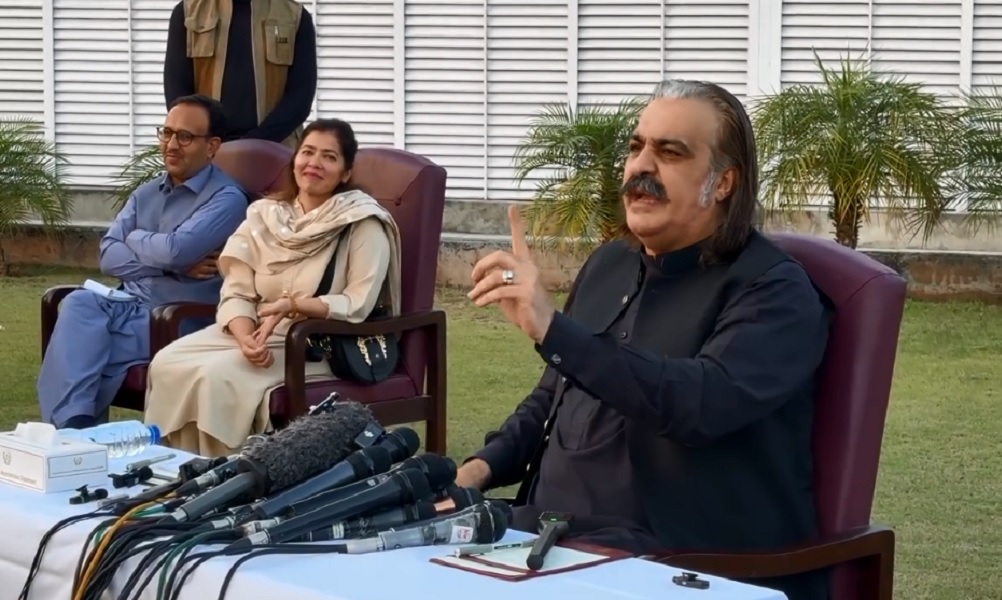
Amid rising tensions over Pakistan’s repatriation plans for illegal Afghan nationals, Khyber Pakhtunkhwa Chief Minister Ali Amin Gandapour said on Friday that no refugees will be forcibly deported from the province.
“We will not allow any Afghan refugee to be expelled by force from Khyber Pakhtunkhwa. We stand firmly against such inhumane deportations,” Gandapur said at a press conference.
The remarks came as the Pakistani government ramps up efforts to repatriate undocumented Afghan refugees and Afghan Citizen Card (ACC) holders, following the expiration of the voluntary return deadline on March 31, 2025.
“The past situation, where Afghan refugees, including women and children, were stranded at the border, tarnished Pakistan’s image,” Gandapur said, reaffirming the provincial government’s commitment to a dignified repatriation process.
“We are setting up camps for voluntary repatriation, and anyone wishing to return will be helped. However, we will not forcibly expel any Afghan refugee,” he stated.
Afghans holding Afghan Citizen Cards (ACC) — issued by Pakistan authorities and held by 800,000 people, according to the United Nations — face deportation to Afghanistan after the deadline.
More than 1.3 million Afghans who hold Proof of Registration (PoR) cards from the UN refugee agency, UNHCR, are also to be moved outside the capital Islamabad and neighbouring city Rawalpindi.
Latest News
IEA has 46 township plans for returnees, minister tells visiting Iranian official
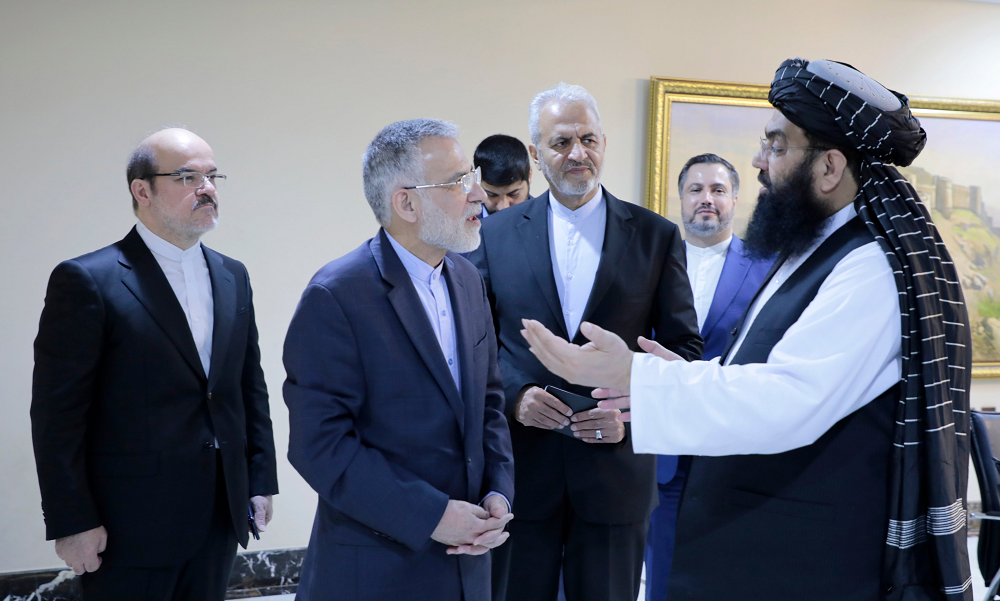
The Islamic Emirate of Afghanistan (IEA) has 46 township plans for returning refugees, Acting Minister of Refugees and Repatriation Mawlawi Abdul Kabir told a visiting Iranian diplomat in Kabul, calling on Tehran to give refugees time to return.
According to a statement issued by the ministry on Saturday, Abdul Kabir said during the meeting that Afghanistan and Iran are friendly neighbors that have many commonalities.
He stressed the need to further develop and strengthen relations between the two countries and said that the frequent visits of high-ranking Iranian officials show that Tehran wants positive and friendly relations with Afghanistan.
Abdul Kabir thanked Iran for its assistance and hosting of Afghan refugees, saying that Iran and Pakistan have been hosting Afghan refugees for the past few decades. He called for more leniency in the treatment of migrants.
He said that the Islamic Emirate is preparing a mechanism to provide legal documents for those migrants whose legal residence in Iran has expired.
In the meeting, Mohammad Reza Bahrami, Iran’s new Assistant Minister and Director General for South Asian Affairs at the Foreign Ministry, invited Abdul Kabir to visit Tehran, and called for repatriation plan to be shared before the trip.
He stressed on the humane treatment of Afghan refugees and appreciated the Islamic Emirate’s initiative to build 46 townships, calling it an important step forward for the return of refugees.
Bahrami noted that there are currently eight million Afghan reguees living in Iran, of whom four million are undocumented or have their residence expired.
-

 Latest News4 days ago
Latest News4 days agoAfghanistan’s reconstruction is in the interest of EU: Uzbek president
-

 Latest News5 days ago
Latest News5 days agoUS won’t rest until all Americans detained in Afghanistan brought home: Rubio
-

 Latest News4 days ago
Latest News4 days agoMinistry of Economy calls on US to release Afghanistan’s frozen funds
-

 Latest News5 days ago
Latest News5 days agoBulgaria brings five people to trial over deaths of 18 Afghan migrants
-

 Latest News4 days ago
Latest News4 days agoPakistan ‘extends’ deadline for a week for Afghans to leave the country
-

 Regional5 days ago
Regional5 days agoChina launches military drills around Taiwan, calls its president a ‘parasite’
-

 Business5 days ago
Business5 days agoGold climbs to record high as tariff worries bolster safe-haven demand
-

 Sport4 days ago
Sport4 days agoIPL 2025: Batters in race for prestigious Orange Cap


